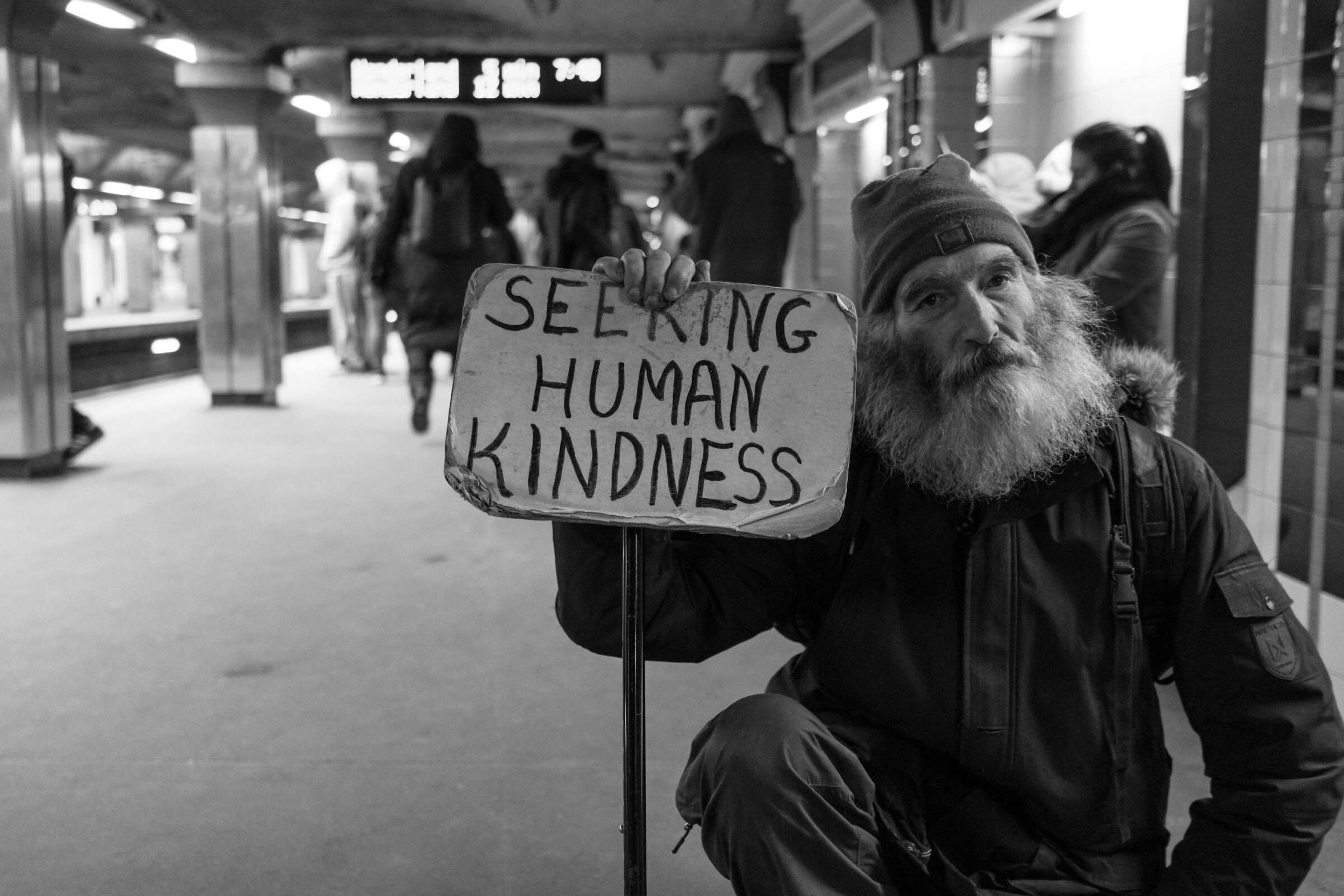Homelessness
For centuries, Christians have been at the forefront of working for the poor, the marginalised and the rejected. In doing so, they are following the teaching and example of Jesus Christ 2,000 years ago. He spent much of his time with people who were despised and rejected by society. He made a point of showing them love. Christians believe that the Bible sets out the best way for people to live. The Bible book, Micah, explains what God wants from his people: ‘to act justly and to love mercy and to walk humbly...’ Jesus said that people should care for each other and put other people’s needs before their own. Another Bible book, Proverbs says, ‘Whoever is kind to the poor lends to the Lord, and he will reward them for what they have done…’ This is reflected in a teaching principle of the Roman Catholic Church that it should: ‘clothe the poor, feed the hungry, shelter the homeless and have respect for all human beings’.
‘Whoever is kind to the poor lends to the Lord, and he will reward them for what they have done…’
Many organisations, Christian and non-Christian, big and small, are working to tackle the terrible blight of homelessness. For example, in towns and cities around the world, the Salvation Army provides food and shelter to rough sleepers. It often offers them access to showers and health checks, and advice on how to find a home or deal with the personal issues which may have led to them ending up on the streets. Many volunteers who work with homeless people testify that it can hit anyone, whatever their education, background or social status. The loss of a job, family breakdown or illness can lead to someone losing their home.
Continued below...

Christian housing campaigners
In 19th century Britain, Christian philanthropists played a significant role in improving housing for some of the poorest in society. In Birmingham, Richard and George Cadbury knew that their workers lived in slums and so they set about designing and building good quality houses for them. They built almshouses for elderly people too. Their Bournville community became a model for decent homes. In York, Joseph Rowntree followed a similar path, creating housing for his workers like that at Bournville. Joseph had worked in a soup kitchen and visited Ireland during the famine of the 1850s, so he saw extreme poverty and homelessness first hand. Campaigners followed the lead set by the Cadburys, Joseph Rowntree and others to press for better housing. That work continues. The Joseph Rowntree Housing Trust, named after him, now manages affordable housing and care homes for elderly and disabled people. The Joseph Rowntree Foundation carries out research into the causes of poverty, social exclusion and homelessness.
‘Foxes have holes and birds have nests, but the Son of Man (Jesus) has no place to lay his head…’
Jesus and the disciples knew homelessness
Jesus understood what it meant to rely on others for a roof over his head. And he hinted that anyone who wanted to follow him could expect the same thing. He travelled widely around what is now the Middle East for three years. And his closest followers, the 12 disciples, left their homes to be with him. The Bible book, Matthew, records a conversation where a man promised to follow Jesus wherever he went. Jesus’ reply indicated the cost of this: ‘Foxes have holes and birds have nests, but the Son of Man (Jesus) has no place to lay his head…’ Twice Jesus sent some of his followers out on ‘mission trips’ to tell others about God and heal sick people. Each time he told them that they must stay with people who made them welcome. No shelter was organised for them in advance. In the Bible book, 1 Corinthians, Paul – one of the most significant people in the early Church – writes about what he is enduring as he travels and preaches… ‘we go hungry and thirsty, we are in rags, we are brutally treated, we are homeless…we have become the scum of the earth…’. In some parts of the world, Christians pay a high price for their faith in the 21st century. Many find themselves excluded from society and even their own families and homes if they leave the faith they were brought up with to follow Jesus.

Demonic possession


